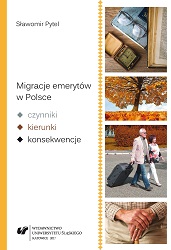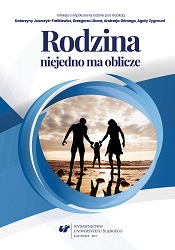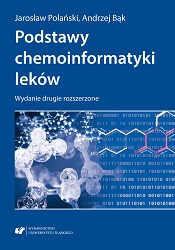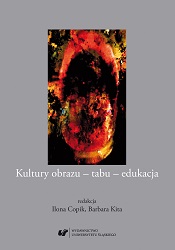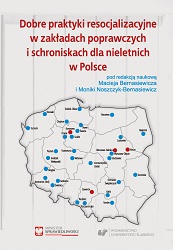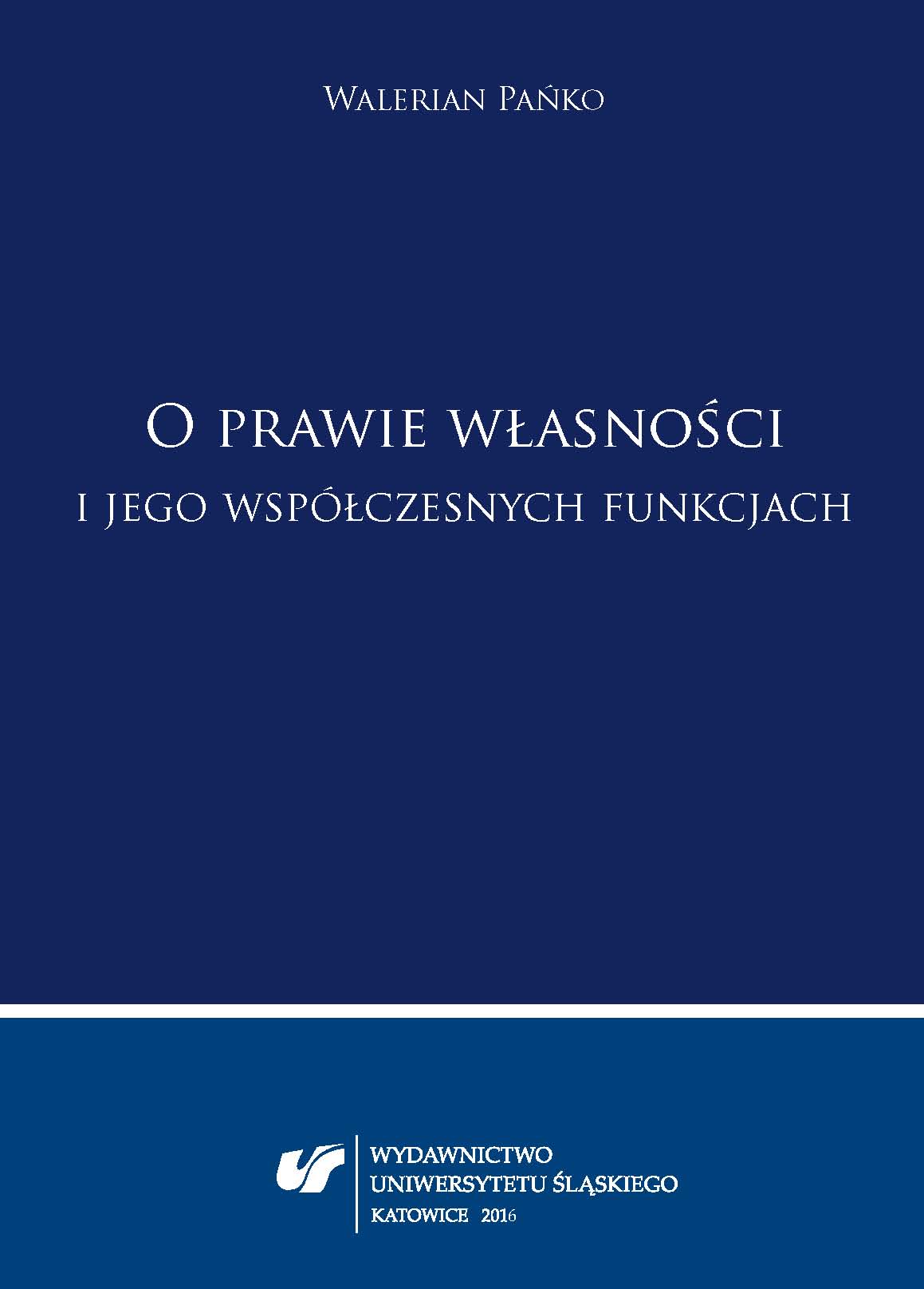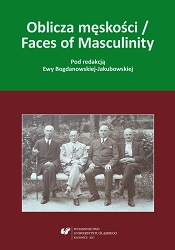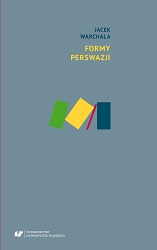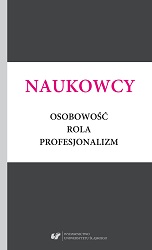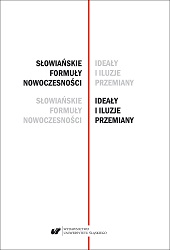Psychopedagogiczne uwarunkowania odroczenia decyzji o rozwodzie. Porównanie małżonków rozwodzących się i zawieszających postępowanie rozwodowe
Author(s): Weronika Juroszek / Language(s): Polish
Keywords: marriage maturity; liability in marriage; divorce; marital conflict; postponement of divorce decision
The issues of the research carried out fall within the scope of the determinants of divorce conflict and coping with it. The subject of the research are factors that condition the postponing of divorce decision (manifesting itself in the form of the suspension of divorce proceedings). It has been assumed that the durability of marriage is a value which needs to be protected, hence the importance of such actions of the spouses which aim at reconstructing the bonds of marriage. These actions include the suspension of divorce proceedings. The factors that determine the decision concerning the suspension have been analysed. In order to do so, the spouses who decide on the suspension of divorce proceedings and those who take the final decision to get divorced have been compared. In the research carried out, it has been assumed that there are specific conditions for the suspension of divorce proceedings. They are as follows: maturity for marriage, conjugal family of origin, marriage duration, income, duration of mediation sessions, engagement of an attorney in the proceedings, participation in a therapy. In view of the above, the following hypotheses have been drawn: spouses who suspend divorce proceedings, compared to those getting divorced, are characterized by greater maturity (manifested by empathy, caring for the well-being of the children, caring for financial security of the family, fidelity, the will to forgive, help in difficult situations and responsibility), more frequently come from conjugal families, more seldom declare premarital pregnancy, are characterized by a longer duration of marriage, have higher incomes, spend less time at mediation sessions, more often decide to participate in a therapy. A research question regarding the reasons for the deterioration of marital relations has also been posed. The aforementioned hypotheses have made it possible to determine research variables – dependent and independent. The dependent variable is the type of a settlement reached, i.e. a written contract between the disputing parties, the aim of which is to reach an agreement. The settlement takes one of the two forms: a suspension of divorce proceedings (spouses decide to postpone the divorce decision) or a divorce (spouses sign a divorce agreement, in which they state that economic, physical, psychical and spiritual bonds between them have extinguished). Independent variables, in turn, refer to other conditions for postponing the divorce decision, which have been listed earlier. The data for the research have been gathered from interviews. Two interviews have been made with spouses who have filled divorce petitions and agreed to be interviewed and for the data obtained from these interviews to be used anonymously. The data gathered from interview 1 contained the following information regarding the characteristics of the group studied: the age of the spouse, the age of entering into marriage, the level of education, living together or apart, the plaintiff’s sex, the number of children, the number of siblings, the type of marriage entered into, the marital status at the moment of entering into marriage. The interviews have also made it possible to gather data concerning the family of origin (conjugal/broken), premarital pregnancy, the duration of marriage, spouses’ income, the duration of mediation sessions, hiring an attorney, the declaration to take part in a therapy. During interview no. 1 the researcher also posed a question regarding the reasons for the deterioration of marital relations: ‘What caused the deterioration of marital relations?’ The researcher noted down literal responses of the persons being questioned. Interview 2 was constructed on the basis of pilot studies and subject literature. It concerned spouse perception of their maturity for marriage (app. 2). The interview was of a structured character. It consisted of 10 closed questions to which the persons responded ‘yes’ or ‘no’. The questions concerned the following aspects of maturity: caring for children’s well-being, caring for financial security of the family, help in difficult situations, the willingness to forgive, empathy, fidelity and responsibility (accepting the consequences of one’s own actions, keeping commitments, the feeling of guilt in the case of hurting family members, striving toward redressing the wrong). It must be emphasised that (app. 1) all married couples (i.e. 333), including 46 couples suspending divorce proceedings and 287 couples getting divorced participated in the first interview (nevertheless, full data were not gathered from all spouses, hence different number of persons questioned are presented in particular tables). In the second interview concerning maturity (app. 2), 82 married couples participated, including 46 couples getting divorced, selected in such a way that both groups (spouses getting divorced and those suspending the divorce proceedings) were as similar to each other as possible in terms of age, duration of marriage, the number of children, the level of education, age when entering into marriage, marital status at the moment of entering into marriage. Quantity strategy has been used in the research paper. Regularities achieved by means of the statistic analysis method have provided a general picture of the situation of spouses getting divorced and facilitated a confrontation of the results with statistic model assumptions. These regularities have been completed with spouses’ statements, which have given a new significance to the results obtained within the statistic analysis and have provided interesting possibilities to interpret them. Additionally, the aforementioned statements have enriched the contents of this thesis, as individual’s opinions often appeal more to the reader than „dry” statistical data. The thesis consists of three parts: theoretical, methodological and empirical. In the theoretical part (consisting of three chapters) the following issues have been analysed: spouses’ psychological maturity, values and their significance in spouses’ lives (with specific consideration given to the values of education), divorce as a social problem (statistical data illustrating the situation of divorces in Poland), the reasons for a divorce conflict, the state of research regarding psychosocial consequences of divorce for parents and children. Taking into consideration the fact that the research describes married couples participating in mediation, the theoretical part includes basic information about it and the procedure of suspending divorce proceedings. The methodological part includes research questions and hypotheses, the method of gathering data, variables and research procedure. The research group has been described, taking into account its characteristic features, such as the age of spouses, the age at the moment of getting married, level of education, type of living (together/apart), the number of children, the number of siblings, the marital status of the spouses at the moment of getting married. The next five chapters – empirical – refer directly to the hypotheses tested and to the responses to research questions concerning the causes of the deterioration of marriage relations. It has been assumed in this thesis that marriage is a value, hence factors considered to be especially important are those underlying the decision to suspend the divorce proceedings for some time in order to fix the damaged relations. The results of the research carried out have confirmed all the verified hypotheses, so it turned out that both spouses’ maturity (including responsibility), conjugal family of origin, longer duration of marriage, higher income, shorter mediation sessions as well as declaration to participate in a therapy favour the suspension of divorce proceedings. In turn, the decision to get divorced coexists with declaring premarital pregnancy and hiring an attorney in mediation. In response to the research questions posed, such causes have also been named which in the opinion of the spouses researched have had a decisive influence on the deterioration of marital relations, and as such favoured divorce and not the suspension of divorce proceedings. They are as follows (listed from the most frequently to the most infrequently declared): adultery, mother-in-law’s interference, addiction, problems with work, child’s birth, a child from previous relationship, illness and disability in the family, father-in-law’s interference, miscarriage, departure abroad, others. The results of statistical analysis have shown the following reasons for the deterioration of marital relations, which significantly differentiate the group getting divorced from the one suspending divorce proceedings: adultery, addiction, problems with work, child’s birth. It must be emphasised that while both verifying the hypotheses tested and discussing the reasons for the deterioration of marital relations, statements regarding maturity with special concern given to the value of responsibility have been searched for in the spouses’ statements. It has been assumed that maturity and pursuing values in life have key significance for postponing the decision about divorce. Numerous detailed issues experienced by spouses in the divorce crisis have been listed in the thesis. Knowing these problems and the attempts to solve them may be used during various meetings and workshops, which aim at shaping correct attitudes towards marriage and family. Using some problem illustrations in writing educational programs for schools, preparing young people for married life is also worth considering.
More...


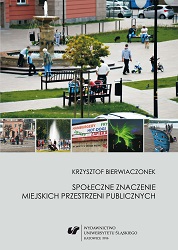

![Birth rituals in Upper Silesia (seclusion of the woman in labour). Polski atlas etnograficzny [Polish ethnographic atlas] and Atlas der deutschen Volkskunde in a comparative perspective](/api/image/getbookcoverimage?id=document_cover-page-image_551750.jpg)
